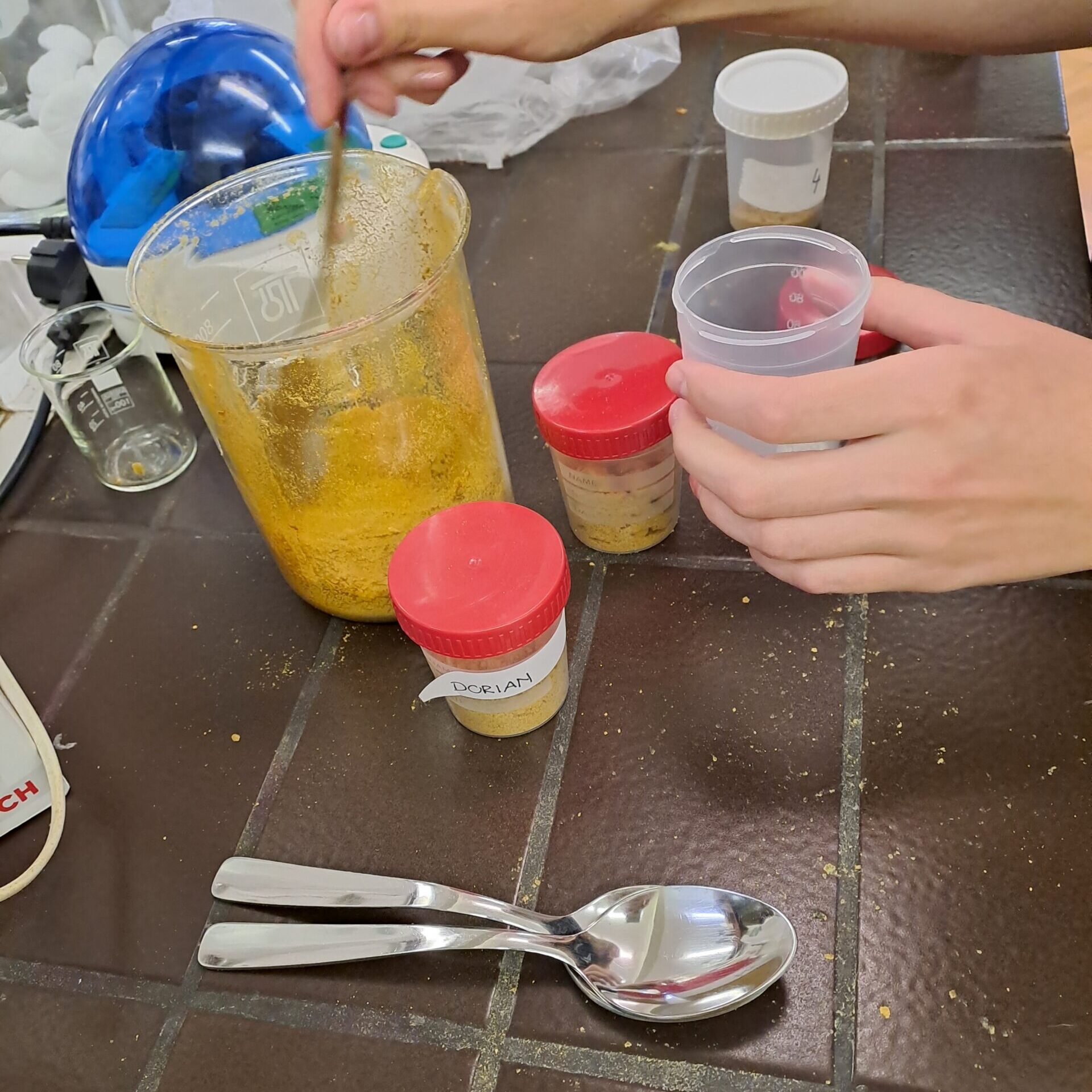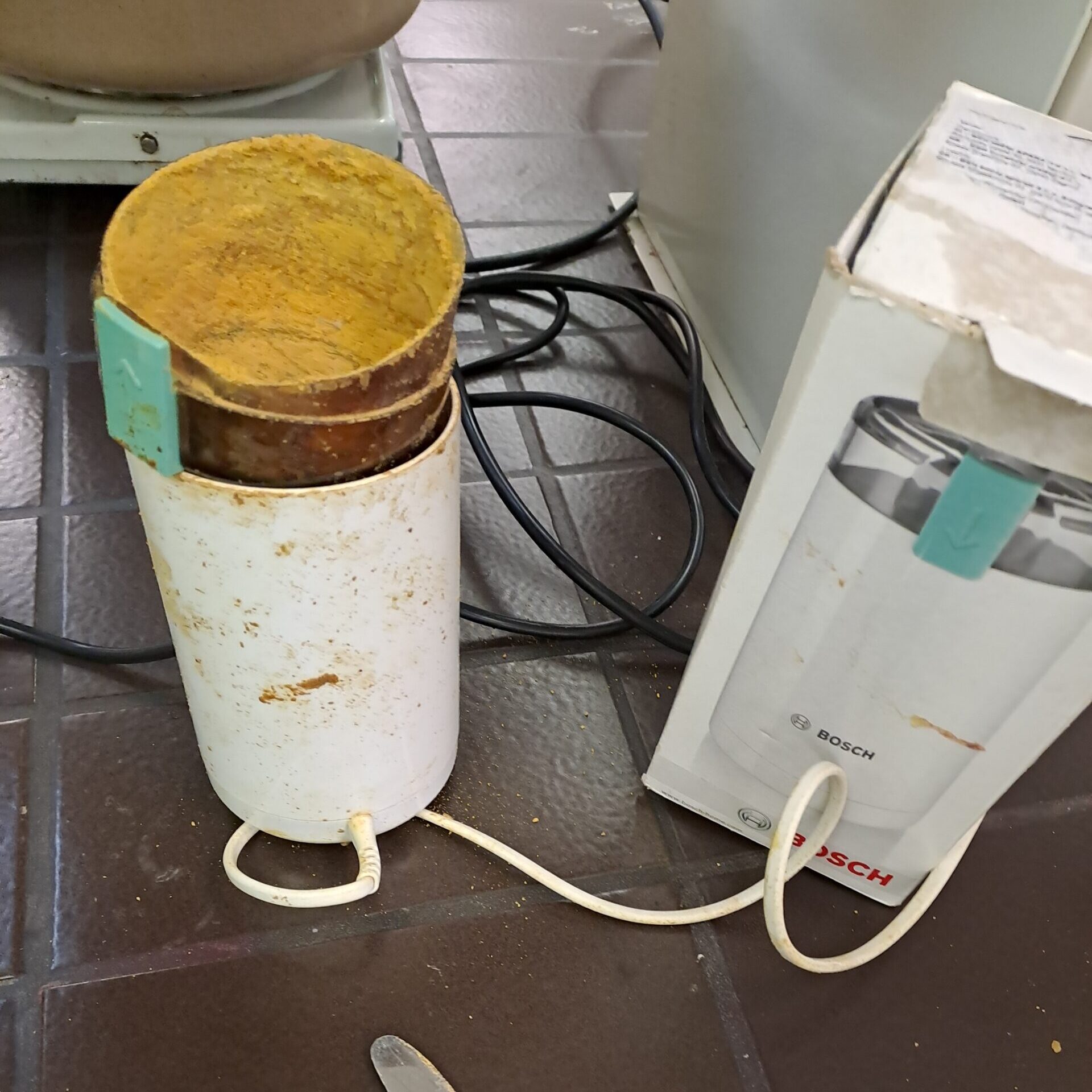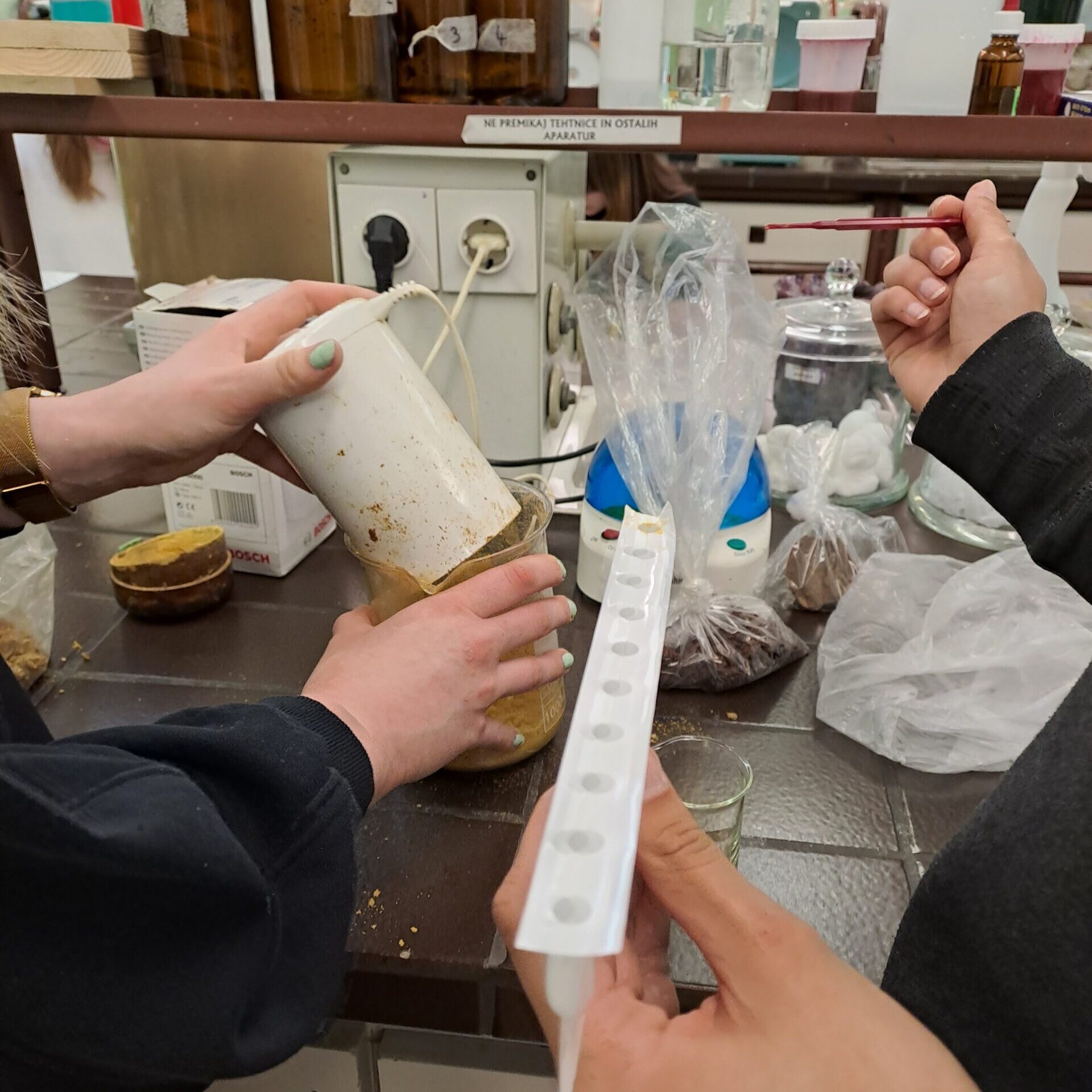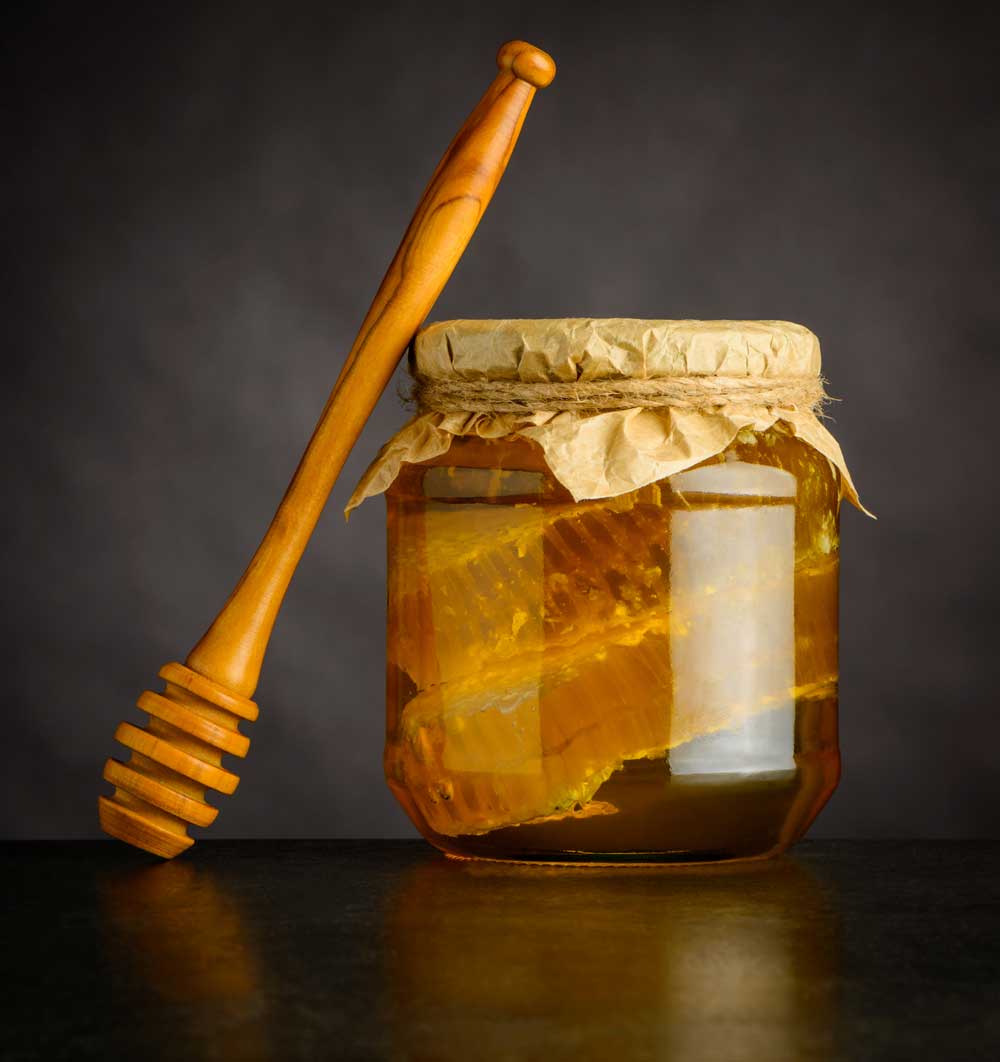
Propolis
Propolis is a resinous bee product that has been used since ancient times. The word “propolis” is of Greek origin and means the defense of the city.
What is propolis?
Bees collect it from plant buds, tree bark, and other plants, processing the resinous substance with enzymes found in their saliva and enriching it with active ingredients from pollen. Bees primarily use propolis to coat the inner walls of the hive and seal internal cracks and gaps in the honeycomb, hence its other name, propolis cement. However, this is not its only role; bees also use it to protect the hive entrance, shielding their community from infections and fungal diseases.
Composition of propolis:
While the complete structure of propolis is not precisely known, this mixture is believed to contain about 50% resin, 30% essential oils, and approximately 5% pollen. Additionally, it contains a significant amount of proteins, small quantities of vitamins (mostly B-group vitamins from pollen), minerals, and trace elements such as calcium, potassium, and sodium. From a pharmacological perspective, the most important components are flavonoids, various phenols, and aromatics responsible for its biological activity.
Uses of propolis:
Propolis can be used orally in the form of powder, tablets, granules, propolis tinctures, aqueous extracts, water-alcohol emulsions, propolis oil, and propolis milk. It can also be applied to the skin in the form of emulsions, ointments, aqueous solutions, alcohol extracts, and for compresses and local use. Propolis can be introduced into the body using electrophoresis, ultrasound, aerosol, thermal inhalation with a propolis and wax water bath.



Healing Properties of Propolis
Due to its therapeutic benefits, propolis is used for various health purposes. It exhibits antiviral, antibacterial, and antifungal effects, alleviates pain, and boosts the immune system. Propolis plays a crucial role in treating diseases resulting from stress and toxic environmental influences that weaken the immune system. It prevents microbial growth, stimulates enzyme activity, and promotes tissue regeneration.
One notable property of propolis is its effectiveness in treating burns. Research suggests that Brazilian propolis is more efficient against burns than most prescribed creams. It is also utilized in dental medicine, with historical use by Greeks and Romans for oral cavity disinfection. Propolis is effective in treating gingivitis and can be found in some toothpaste formulations. Additionally, it acts against periodontal issues, prevents cavities and tooth decay, and maintains oral hygiene. Some studies even suggest that propolis may inhibit the growth of cancer cells in the early stages of the disease. It is beneficial for bone health, contributes to blood pressure regulation, and provides additional energy.
A positive aspect of propolis is its low allergenicity, affecting only about 1.3% of the population. Allergic reactions are generally not life-threatening, resulting in headaches, dizziness, itchy skin rashes (if applied topically), or a discomforting feeling in the throat. While propolis is generally safe for use, it is not recommended for asthma patients, those allergic to it or to bee products, and individuals with serious heart or kidney issues. It’s also advised to avoid propolis two weeks before and after surgical procedures, as it may affect blood clotting.
Propolis can be safely combined with most medications. Studies indicate its excellent synergy with antibiotics, mutually reinforcing their effects.



What Others Think
Propolis is a fantastic substance, as Pesnik mentioned. Bees create it from tree resins, mixing it with a bit of pollen and their secretions to seal cracks in the hive. It's also known as hive-cement. Propolis, mixed with 70% alcohol or natural "flower" (a stronger distillation product), forms a protective layer on wounds, acting as an antibiotic. I wouldn't recommend pure propolis for deep wounds, but it's great for surface abrasions and minor cuts.

Posts
Connections
PROVIDERS

ČEBELARSTVO BEDEK
Danilo Bedek s.p.
Moščanci 21
9202 Mačkovci

ČEBELARSKI CENTER MARIBOR
TRGOVINA JANA
Jana Pušnik Pokrivač s.p.
Tavčarjeva 11, 2000 Maribor
ČEBELARSKI CENTER MARIBOR
Streliška 150, 2000 Maribor

ŠEMEN ŠTEFAN
Šemen Štefan s.p., prodaja medu
Lipa 145 A
9231 Beltinci
Propolis is a go-to for all wounds and injuries. I've completely healed deep and ugly cuts using it. Whenever something happens, I immediately think of propolis.